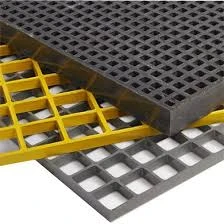loading...
- No. 9, Xingyuan South Street, Dongwaihuan Road, Zaoqiang County, Hengshui, Hebei, China
- admin@zjcomposites.com
- +86 15097380338
- Welcome to visit our website!
Innovative Water Filtration Solutions Using Pressure Vessel Technology for Enhanced Purification Systems
Understanding Pressure Vessel Water Filters A Key Component in Water Treatment
In today's world, where access to clean and safe drinking water is becoming increasingly critical, the importance of efficient water treatment systems cannot be overstated. One vital component of these systems is pressure vessel water filters. These filters play a significant role in ensuring that water is purified and safe for consumption, industrial use, and environmental discharge.
What is a Pressure Vessel Water Filter?
A pressure vessel water filter is a type of filtration system designed to treat water by removing impurities, sediments, and contaminants at high pressure. Typically constructed from durable materials like stainless steel or fiberglass, these vessels are capable of withstanding high operational pressure, making them suitable for various applications. Inside these pressure vessels, different types of filter media, such as activated carbon, sand, or specialized membrane filters, work collaboratively to capture unwanted particles and contaminants from the water.
How Do Pressure Vessel Water Filters Work?
The operational principle of pressure vessel water filters is straightforward. Water enters the pressure vessel through an inlet and is forced through the filter media. As the water passes through this media, contaminants are trapped, allowing only clean water to exit through an outlet. The high pressure enhances the filtration efficiency, enabling the removal of finer particles than traditional gravity-fed systems can achieve. Depending on the type of filter media used, the filtering can address specific contaminants, such as chlorine, heavy metals, or biological pathogens.
Types of Pressure Vessel Water Filters
1. Activated Carbon Filters These filters utilize activated carbon's porous structure to adsorb organic compounds, chlorine, and unpleasant odors. They are widely used in residential and commercial water purification systems.
pressure vessel water filter

2. Ultrafiltration Membranes Ultrafiltration membranes are effective at removing bacteria, viruses, and larger organic molecules. These filters are commonly used in municipal water treatment facilities and industrial applications.
3. Reverse Osmosis Systems In reverse osmosis, water is pushed through a semi-permeable membrane, allowing only water molecules to pass while blocking dissolved salts and impurities. This technology is frequently used for desalination and drinking water purification.
4. Sand Filters These are among the oldest forms of filtration used in water treatment. Sand filters can effectively remove larger particles and are often used in combination with other filtration techniques to enhance overall water quality.
Applications of Pressure Vessel Water Filters
Pressure vessel water filters are versatile and find applications in numerous sectors, including
- Municipal Water Treatment Ensuring the safety and quality of drinking water provided to communities. - Industrial Processes Many industries, such as pharmaceuticals and food production, rely on high-quality water for their operations. - Aquaculture Maintaining water quality in fish farming to promote healthy growth rates. - Wastewater Treatment Protecting the environment by filtering out harmful contaminants before water is released into natural bodies.
Conclusion
In conclusion, pressure vessel water filters are an indispensable part of modern water treatment systems. Their ability to efficiently filter out a wide range of contaminants under pressure makes them suitable for numerous applications across diverse industries. As the demand for safe water continues to rise, the advancement and implementation of these filtration technologies will play a crucial role in addressing global water challenges, ensuring that clean water is accessible for all. Whether for residential use or large-scale municipal systems, the significance of pressure vessel water filters in promoting public health and environmental sustainability cannot be underestimated.
-
Premium FRP Handrail for All ApplicationsNewsAug.29,2025
-
Low Maintenance FRP Mini Mesh Grating ProductsNewsAug.29,2025
-
Innovative FRP Square Tubes for Modern Industrial SolutionsNewsAug.29,2025
-
FRP Water Storage Tanks Wholesale Solutions for Bulk BuyersNewsAug.29,2025
-
FRP Molded Grating Solutions for Diverse Industrial ApplicationsNewsAug.29,2025
-
Construction Advancements Through FRP Pultruded ProfilesNewsAug.29,2025
-
Why Choose FRP Railings, Guardrails, and Handrail Systems?NewsAug.29,2025
